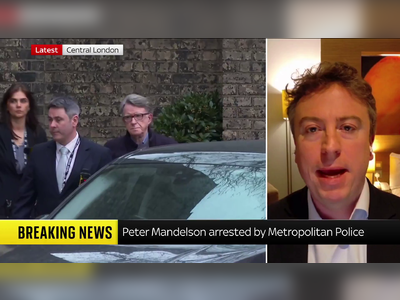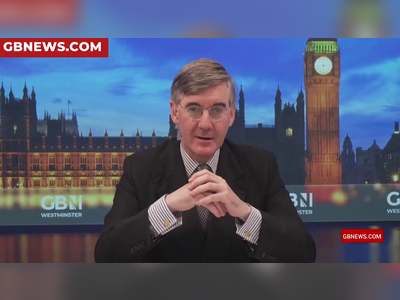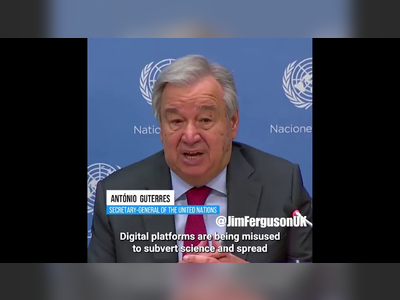
Portsmouth’s £25m border post stands empty after minister’s imports U-turn
Next to the container terminal at Portsmouth International Port, just a few hundred metres from the water’s edge, stands a new hi-tech border control post.
Built over the past 18 months at a cost of £25m, a cost shared by the taxpayer and the port’s owner, Portsmouth city council, the high-specification facility should be in its inaugural week of use, handling post-Brexit checks on imports of animal, plant and forestry products arriving from the EU.
The building stands empty and silent, however, following the government’s decision in April to delay, probably for good, the introduction of physical inspections of fresh meat, fruit, vegetables and plants from the EU.
The facility was completed before the government’s previous and much-delayed start date of 1 July for the new border measures.
The government is now working on a new operating model for imports – due to be published in the autumn and come into effect at the end of 2023 – following the announcement by the Brexit opportunities minister, Jacob Rees-Mogg, at the end of April that all checks and paperwork at the border would be digitised.
The decision has left ports such as Portsmouth counting the cost and wondering what to do with their impressive but redundant multimillion-pound white elephants.
The British Ports Association (BPA), a lobby group for the industry, calculates that at least £450m of taxpayers’ money has been spent on these now mostly unwanted new border control facilities.
This includes the £300m spent on buildings at ports, as well as an estimated £250m spent by the government on building 10 inland border facilities, in places such as Dover and Holyhead where there is not space for a checkpoint next to the terminal. These buildings will be difficult to repurpose.
“It is designed specifically for government inspections, nothing else,” said Mike Sellers, director of Portsmouth International Port.
“The cheapest option would be to demolish it. It’s taking up two acres of operational land; we are not blessed with lots of land so it’s a big problem for us in terms of operations.”
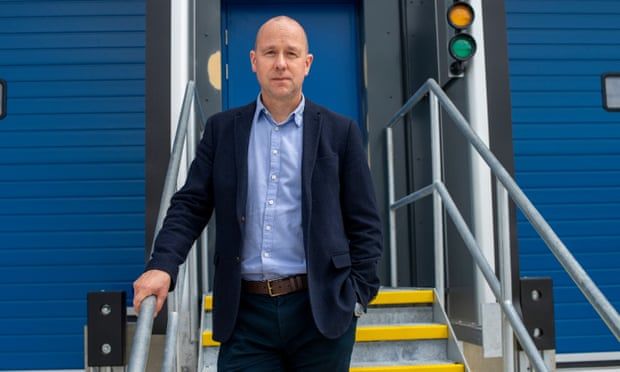 Mike Sellers, the director of Portsmouth International Port.
Mike Sellers, the director of Portsmouth International Port.
The port would have earned money from the border control post by levying charges on importers for the goods checks. Under the grant fund arrangement agreed with the government, Sellers said the port was currently unable to use the facility for other commercial reasons.
Even if this was allowed, it would be time-consuming and costly to reconfigure for another use.
Portsmouth, along with 40 other ports, received £200m in funding for the new control posts through the government’s port infrastructure fund. However, this was oversubscribed, leading the ports themselves to pay an estimated £100m to make up the shortfall.
Portsmouth, the UK’s second-busiest cross-Channel port, applied for £32m of funding and received £17.1m.
It subsequently modified its plans to reduce the cost, but Portsmouth city council took out a loan to cover the £7.8m shortfall.
The leader of the council, Gerald Vernon-Jackson, said it “has been left to foot the government’s bill” and is facing loan and interest repayments at a time of stretched budgets.
“The most serious issue is the phenomenal cost the council has had to absorb,” said Vernon-Jackson. “We have no way of recovering the costs and no offer of financial support from the government.”
The port estimates it will cost £1m a year to keep the facility running, even in a mothballed state.
Constructed to handle “high risk” products such as meat, as well as plants and trees, Portsmouth’s facility has 14 lorry bays, as well as sterile areas and air-lock quarantine zones, designed to prevent any cross-contamination between different categories of goods.
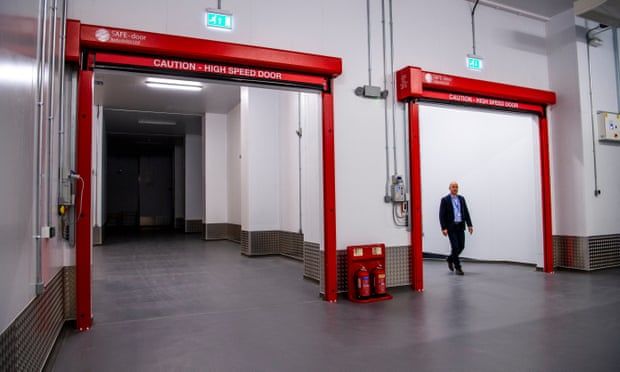 Inside the facility.
Inside the facility.
Nearly 70 workers, including port health staff, vets and port operatives, were expected to work at the facility, checking goods 365 days a year, alongside officials from the government’s Animal and Plant Health Agency and the Department for Environment, Food and Rural Affairs. Port health officers had already been recruited.
When the Guardian visited on Tuesday, workers were laying the final paving stones outside the building. Inside, the freezers – which would have been used to store meat products during the checking process – were being tested and running at a chilly -20C (-4F) degrees.
Stephen Morgan, the Labour MP for Portsmouth South, has written to Rees-Mogg to express his concern about the public money wasted on the construction of border control facilities that may not be needed.
Rees-Mogg said in response that the government would be working with the port to “identify ways of minimising such costs, or recouping costs, if possible”.
The Guardian understands that government officials visited Portsmouth’s facility in recent days, while ministers are exploring other potential uses for the border facilities.
Portsmouth city council is calling on ministers to reimburse it for the original funding shortfall, and give them clarity on whether the border control posts will ever be needed.
When the government announced its U-turn over the introduction of import checks, Rees-Mogg said it was to avoid placing additional costs on British businesses and consumers during a cost of living crisis.
“The decision to postpone and reshape sanitary and phytosanitary controls is probably the right one for the freight industry and the economy,” said Richard Ballantyne, the BPA’s chief executive.
“But from the port operator point of view this has come two years too late.”








